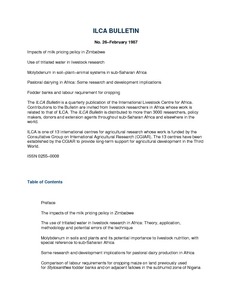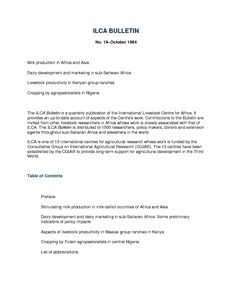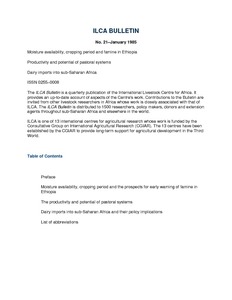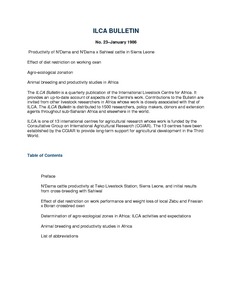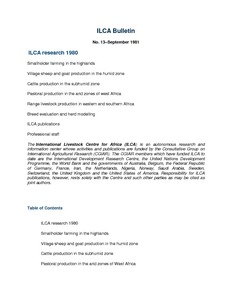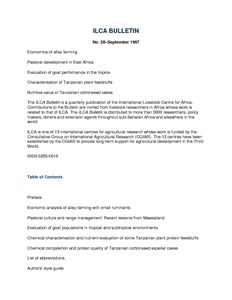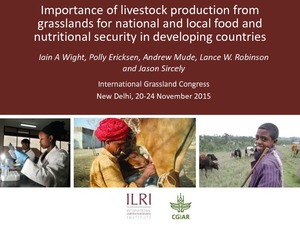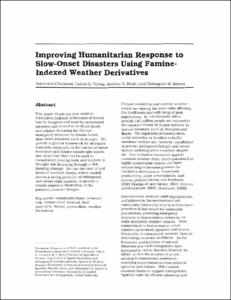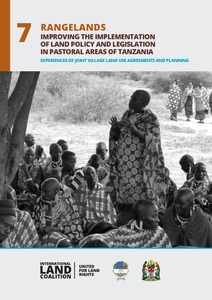ILCA's monitoring activities in Kenya: Report to the Government of Kenya
Describes the monitoring Programme carried out by ILCA covering phase II of the Kenya Livestock Development Project, and the six components included. Also describes a two-tiered monitoring system consisting of intensive studies of carefully selected samples and an extensive data collection network concentrating on key indicators. Discusses initial results from the Kenya monitoring Programme.
ILCA research 1980
Presents and discusses ILCA's research on smallholder farming in the highlands, village sheep and goat production in the humid zone, cattle production in the subhumid zone, pastoral production in the arid zones of West Africa, range livestock production in eastern and southern Africa, and breed evaluation and herd modelling.
Impacts of climate change and variability on cattle production in southern Ethiopia: Perceptions and empirical evidence
Climate change and variability can severely constrain the productivity of pastoral herds by reducing water availability, forage production and quality, and hence the carrying capacity of rangelands. In particular, the risk of heavy livestock losses suffered during recurrent severe droughts associated with climate change and variability presents one of the most serious threats to pastoral livestock keepers.
Improving humanitarian response to slow-onset disasters using famine indexed weather derivatives
This paper illustrates how weather derivatives indexed to forecasts of famine can be designed and used by operational agencies and donors to facilitate timely and reliable financing, for effective emergency response to climate-based, slow-onset disasters such as drought. We provide a general framework for derivative contracts, especially in the context of index insurance and famine catastrophe bond, and show how they can be used to complement existing tools and facilities in drought risk financing through a risk-layering strategy.

